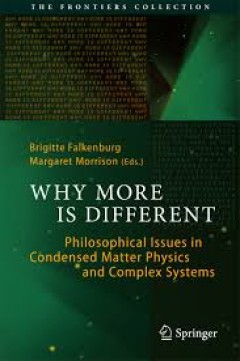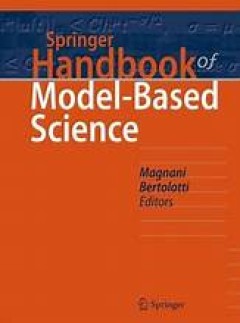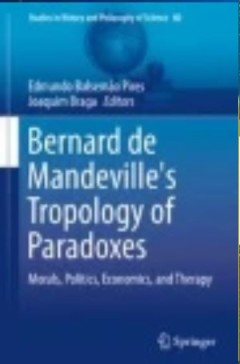Filter by

Reimagining Sustainable Organization
This open access book reimagines a deeper sustainability in dynamic organization. Offering multiple perspectives on arts, design thinking, leadership, knowledge and project management, Reimagining Sustainable Organization addresses our need for thinking and coping differently when facing the many unknowns of real-life enterprises in society. Drawing on process philosophy, real-world case stu…
- Edition
- -
- ISBN/ISSN
- 978-3-030-96210-4
- Collation
- -
- Series Title
- -
- Call Number
- -

The Teleological and Kalam Cosmological Arguments Revisited
A prominent issue in many contemporary philosophy of religion debates concerns whether the universe has a Designer. This book moves the discussion ahead in a significant way by devising an original deductive formulation of the Teleological Argument (TA) which demonstrates that the following are the only possible categories of hypotheses concerning fine-tuning and order: (i) chance, (ii) regular…
- Edition
- 1
- ISBN/ISSN
- 978-3-030-94403-2
- Collation
- -
- Series Title
- Palgrave Frontiers in Philosophy of Religion
- Call Number
- XIII, 387

Towards Responsible Plant Data Linkage: Data Challenges for Agricultural Rese…
This open access book provides the first systematic overview of existing challenges and opportunities for responsible data linkage, and a cutting-edge assessment of which steps need to be taken to ensure that plant data are ethically shared and used for the benefit of ensuring global food security – one of the UN’s Sustainable Development Goals. The volume focuses on the contemporary contou…
- Edition
- -
- ISBN/ISSN
- 978-3-031-13276-6
- Collation
- -
- Series Title
- -
- Call Number
- XIX, 317

Towards Responsible Plant Data Linkage: Data Challenges for Agricultural Rese…
This open access book provides the first systematic overview of existing challenges and opportunities for responsible data linkage, and a cutting-edge assessment of which steps need to be taken to ensure that plant data are ethically shared and used for the benefit of ensuring global food security – one of the UN’s Sustainable Development Goals. The volume focuses on the contemporary contou…
- Edition
- 1
- ISBN/ISSN
- 978-3-031-13276-6
- Collation
- -
- Series Title
- -
- Call Number
- XIX, 317

'The Bell Curve' in Perspective
This open access book examines the implications of The Bell Curve for the social, economic, and political developments of the early 21st century. Following a review of the reception of The Bell Curve and its place in the campaign to end affirmative action, Professor Tucker analyses Herrnstein’s concept of the “meritocracy” in relation to earlier 20th century eugenics and the dramatic incr…
- Edition
- -
- ISBN/ISSN
- 978-3-031-41614-9
- Collation
- XIII, 124
- Series Title
- -
- Call Number
- -

Chemistry Education and Contributions from History and Philosophy of Science
This book explores the relationship between the content of chemistry education and the history and philosophy of science (HPS) framework that underlies such education. It discusses the need to present an image that reflects how chemistry developed and progresses. It proposes that chemistry should be taught the way it is practiced by chemists: as a human enterprise, at the interface of scientifi…
- Edition
- -
- ISBN/ISSN
- 978-3-319-26248-2
- Collation
- -
- Series Title
- -
- Call Number
- 370

Why More Is Different Philosophical Issues in Condensed Matter Physics and C…
The physics of condensed matter, in contrast to quantum physics or cosmology, is not traditionally associated with deep philosophical questions. However, as science - largely thanks to more powerful computers - becomes capable of analysing and modelling ever more complex many-body systems, basic questions of philosophical relevance arise. Questions about the emergence of structure, the nature o…
- Edition
- -
- ISBN/ISSN
- 978-3-662-43911-1
- Collation
- -
- Series Title
- -
- Call Number
- -

Springer Handbook of Model-Based Science
This handbook offers the first comprehensive reference guide to the interdisciplinary field of model-based reasoning. It highlights the role of models as mediators between theory and experimentation, and as educational devices, as well as their relevance in testing hypotheses and explanatory functions. The Springer Handbook merges philosophical, cognitive and epistemological perspectives on mod…
- Edition
- 1
- ISBN/ISSN
- 978-3-319-30526-4
- Collation
- Mathematics
- Series Title
- -
- Call Number
- 510
Re-Thinking Time at the Interface of Physics and Philosophy: The Forgotten Pr…
The current volume of the Parmenides Series “On Thinking” addresses our deepest and most personal experience of the world, the experience of “the present,” from a modern perspective combining physics and philosophy. Many prominent researchers have contributed articles to the volume, in which they present models and express their opinions on and, in some cases, also their skepticism abou…
- Edition
- 1
- ISBN/ISSN
- 978-3-319-10446-1
- Collation
- X, 274
- Series Title
- On Thinking
- Call Number
- 101

Bernard de Mandeville's Tropology of Paradoxes
Edmundo Balsemão is Professor of Philosophy at the University of Coimbra. He graduated from the University of Coimbra, in Philosophy (1986). He has a Master degree in Contemporary Philosophy, obtained in 1990 with a thesis on Emmanuel Levinas, and a Ph. D. with a dissertation on Hegel’s Political Philosophy (1999). He studied at the Ruhr-Universität Bochum (Hegel-Archiv) during a research y…
- Edition
- 1
- ISBN/ISSN
- 978-3-319-19380-9
- Collation
- X, 264
- Series Title
- Studies in History and Philosophy of Science
- Call Number
- 100
 Computer Science, Information & General Works
Computer Science, Information & General Works  Philosophy & Psychology
Philosophy & Psychology  Religion
Religion  Social Sciences
Social Sciences  Language
Language  Pure Science
Pure Science  Applied Sciences
Applied Sciences  Art & Recreation
Art & Recreation  Literature
Literature  History & Geography
History & Geography